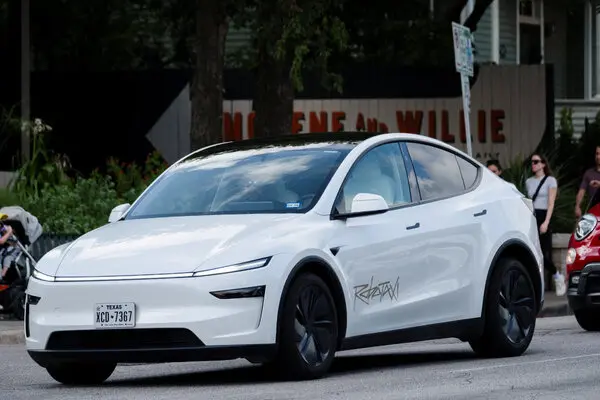In recent years, Brazil has emerged as a surprising frontrunner in the electric vehicle (EV) revolution. A country once dominated by ethanol-powered cars, Brazil is now witnessing a surge in EV adoption, with sales growing by 60% in the first half of 2023 alone, according to Bloomberg Green. This growth is not occurring in isolation; it signals a broader trend across emerging markets, where governments and consumers are increasingly prioritizing sustainable transportation. This article will explore how Brazil and other emerging markets are driving the global EV revolution, discuss the challenges they face, and provide insights into what this means for the future of mobility.
The Rise of Electric Vehicles in Brazil
Government Initiatives and Incentives
Brazil’s government has played a crucial role in fostering the EV market. In recent years, several policies have been introduced to incentivize EV purchases:
- Tax Breaks: Import taxes on electric cars have been significantly reduced, making them more affordable.
- Subsidies: Financial incentives are available for both manufacturers and consumers, promoting local production and reducing costs.
- Infrastructure Investments: The government is investing heavily in charging infrastructure, with plans to install over 30,000 new charging stations by 2025.
These initiatives have created a favorable environment for EV adoption, aligning with global trends in sustainable transportation.
Consumer Trends and Preferences
Brazilian consumers are increasingly aware of the environmental impact of traditional vehicles and are showing a preference for greener alternatives. According to a survey by InsideEVs, 70% of Brazilian car buyers consider environmental impact as a key factor in their purchasing decision. This shift in consumer behavior is a significant driver of the EV boom in Brazil.
- Urbanization: As more Brazilians live in urban areas, the demand for efficient, low-emission vehicles increases.
- Cost Savings: EVs offer long-term savings on fuel and maintenance, appealing to budget-conscious consumers.
- Technology Adoption: Younger generations are more tech-savvy and inclined towards innovative automotive technologies.
Challenges and Opportunities in Emerging Markets
Overcoming Infrastructure Barriers
While Brazil is making strides in EV infrastructure, challenges remain. The widespread availability of charging stations is crucial for the continued growth of EVs. Currently, the ratio of EVs to charging stations is still below ideal levels, posing a logistical challenge. However, partnerships between private companies and the government are accelerating infrastructure development.
- Private Sector Involvement: Companies like BYD and Volkswagen are investing in local production and charging networks.
- Renewable Energy Sources: Brazil’s abundant renewable energy resources, such as solar and wind, offer opportunities to power EV infrastructure sustainably.
Economic and Social Impacts
The shift to electric vehicles also presents economic and social challenges. The transition could disrupt traditional automotive jobs, but it also opens up new opportunities in EV manufacturing and maintenance.
- Job Creation: New jobs in the EV sector can offset losses in traditional automotive industries.
- Economic Growth: Local production of EV components can boost the economy and reduce reliance on imports.
Practical Guide to Embracing EVs in Brazil
How to Charge Your EV
Charging an EV in Brazil is becoming increasingly convenient. Here’s a quick guide:
- Home Charging: Install a Level 2 charger at home to ensure overnight charging.
- Public Charging: Use apps to locate nearby charging stations. Many shopping centers and public parking areas now offer charging facilities.
- Fast Charging: Use fast chargers along major highways for quick top-ups during long trips.
Where to Buy an EV
Interested in purchasing an EV in Brazil? Here are some top models and their features:
- BYD Dolphin: Known for its affordability and range, making it a popular choice among budget-conscious buyers.
- Volkswagen ID.4: Offers a blend of performance and comfort, ideal for families.
- Nissan Leaf: A reliable option with a strong track record in the EV market.
What to Compare
When choosing an EV, consider the following factors:
- Range: Ensure the vehicle meets your daily travel needs.
- Cost: Compare purchase prices, tax incentives, and long-term savings.
- Battery Life: Look for vehicles with robust battery warranties.
Conclusion: The Future of EVs in Emerging Markets
Brazil’s EV boom is a testament to the potential of emerging markets to drive the global electric vehicle revolution. By embracing sustainable transportation, these markets can reduce their environmental impact and foster economic growth. The key takeaways from Brazil’s experience include the importance of government support, consumer engagement, and infrastructure development. As these elements align, emerging markets will continue to play a pivotal role in shaping the future of mobility.
Are you considering joining the EV revolution? Look into the benefits and take the first step towards a greener future. As Brazil and other emerging markets lead the charge, the global shift to electric vehicles seems not only inevitable but also incredibly exciting. Stay tuned for more updates on how this transformation unfolds and what it means for you.

